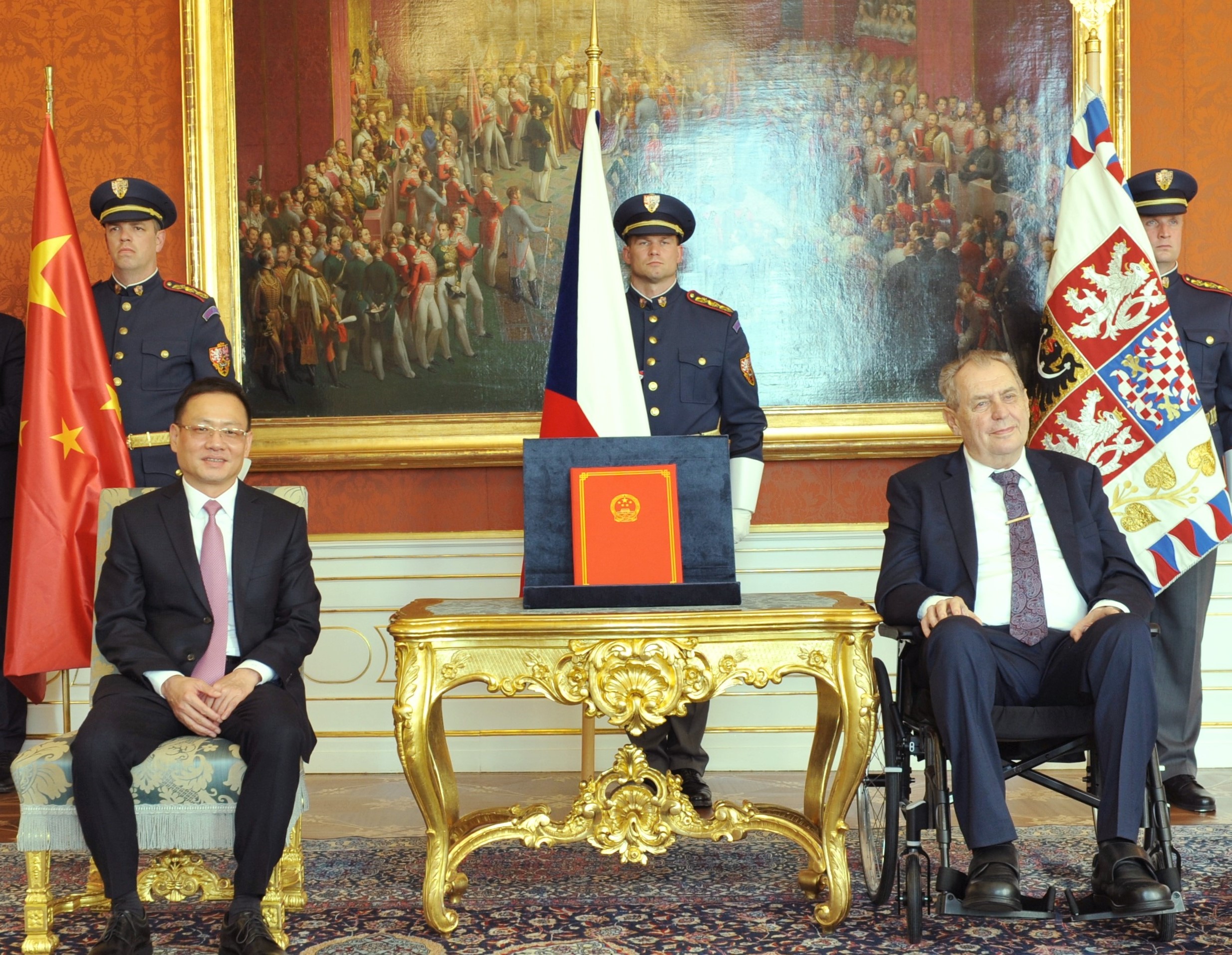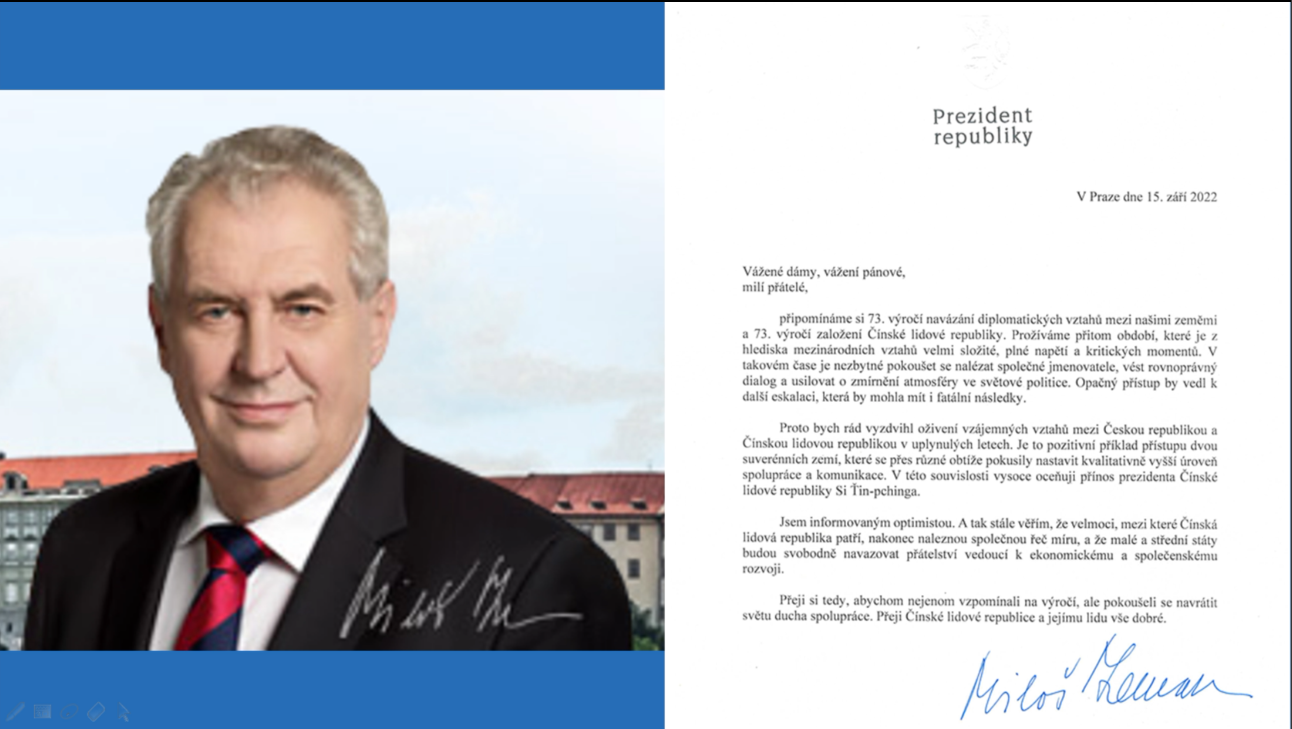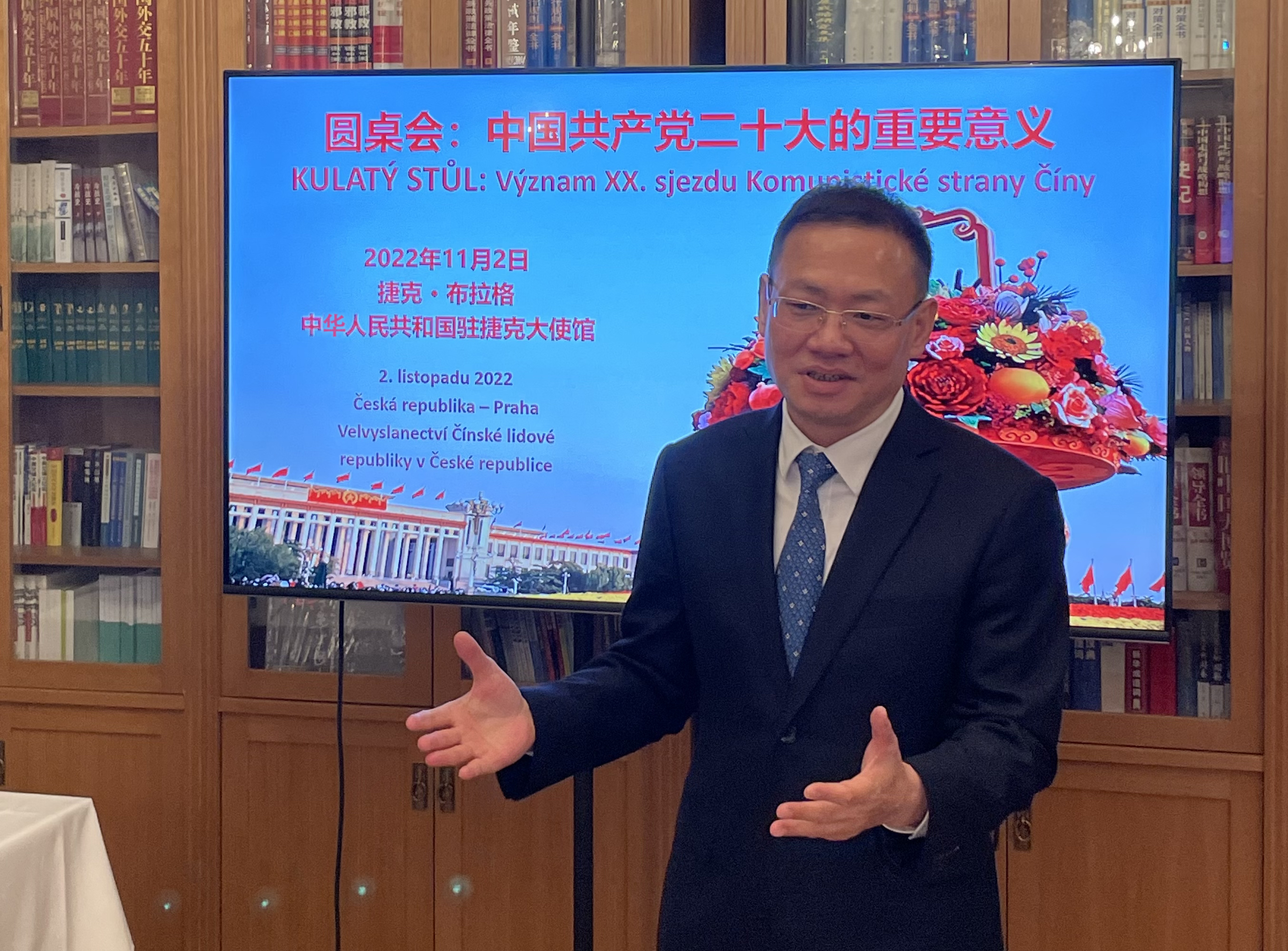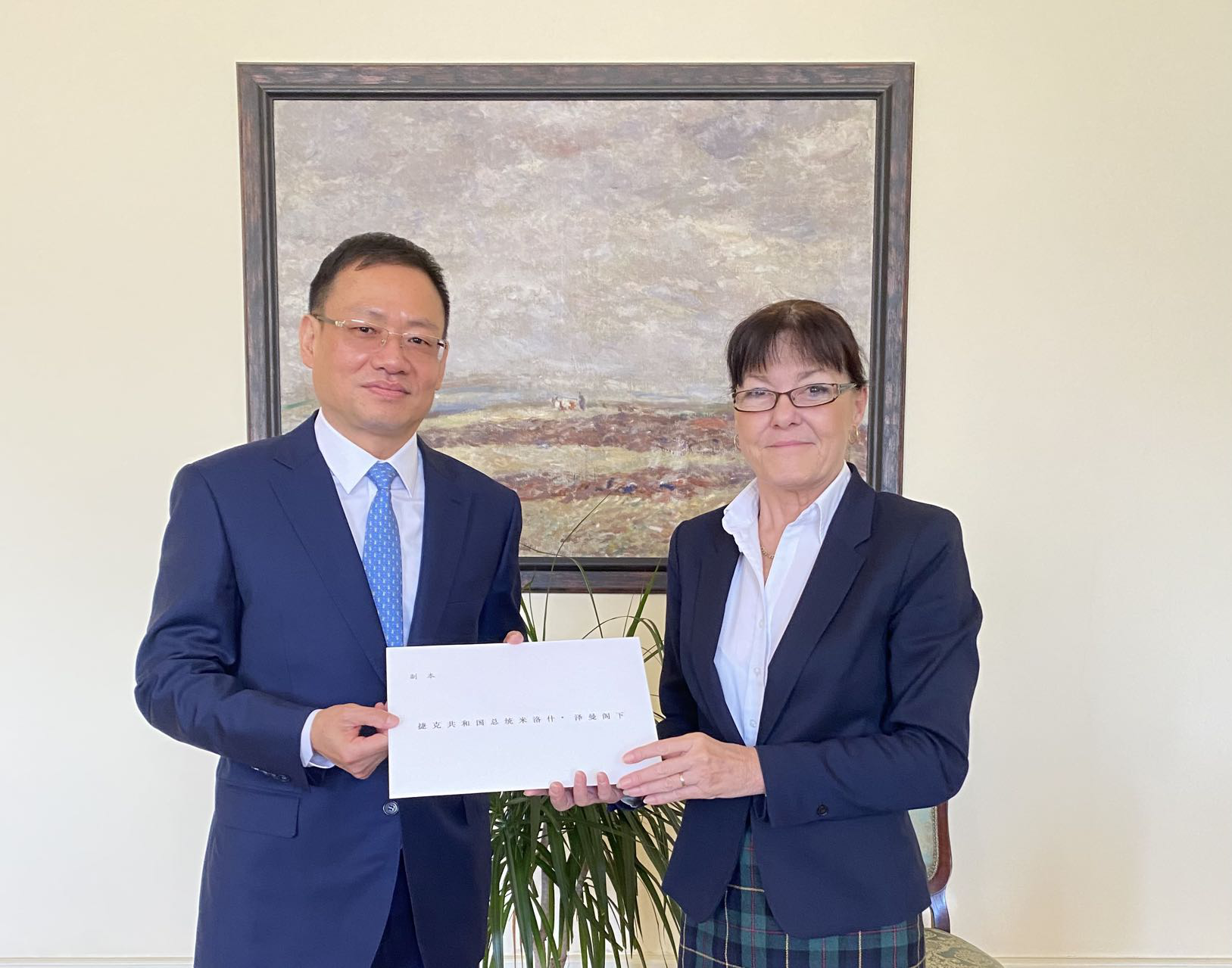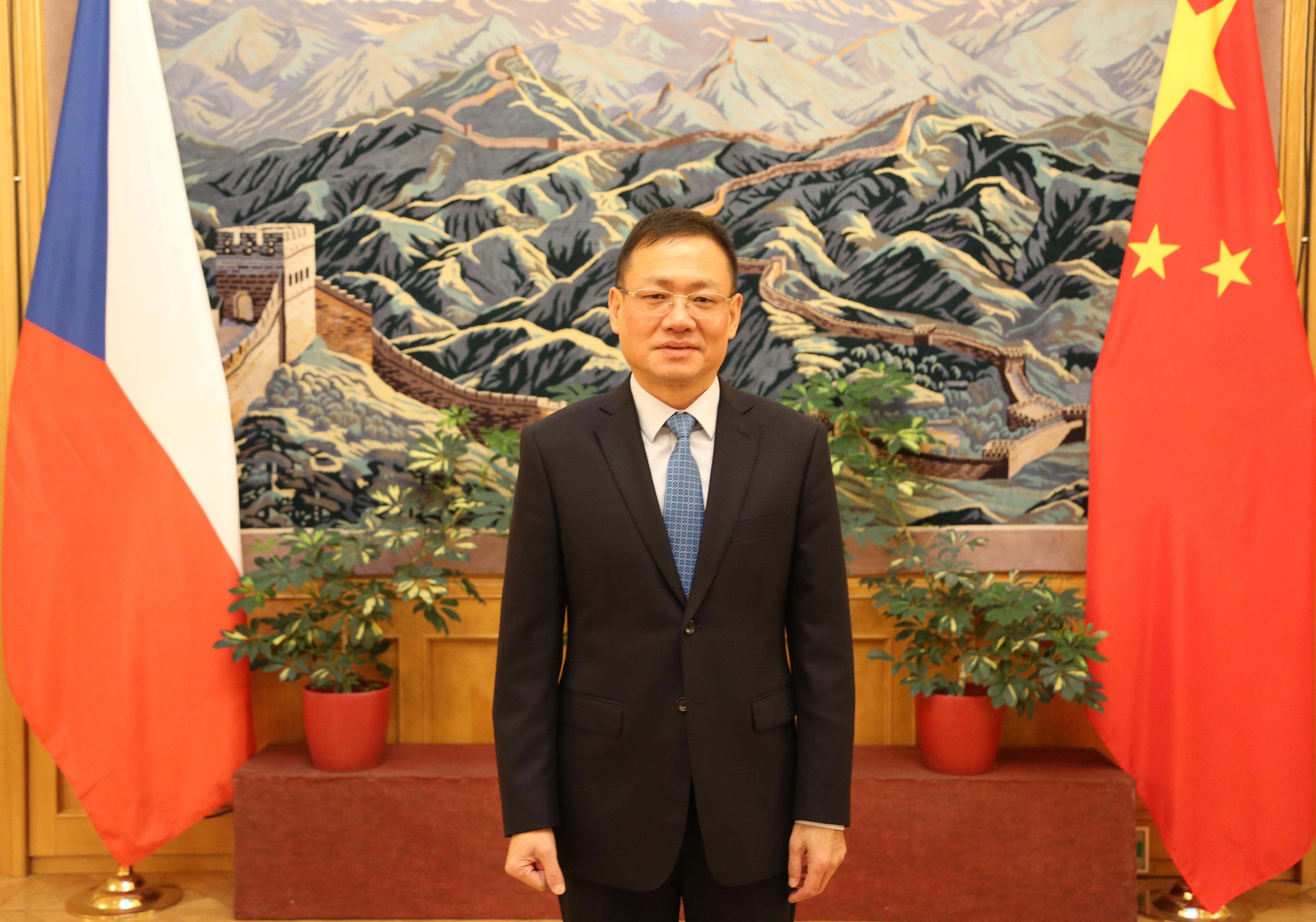| Ambassador Zhang Jianmin on China-US Trade Dispute | |
| 2019-06-19 16:58 |
|
| 14 June 2019
The ongoing China-US trade dispute is causing growing concern in the world. The health of relations between the two biggest economies affect not just the interests of the two countries themselves, but also the well-being of the entire world. Everybody is, therefore, a stakeholder. Unfortunately, since the Trump administration came to office, it has kept taking unilateral and protectionist measures and practiced economic hegemony. In particular, it has frequently resorted to the use or threat of tariff as a weapon against other countries. Like others, China has been a victim of US trade bullying. To safeguard our national interests, we cannot but respond with forceful measures. Our positions have been laid out very clearly in the two documents before you. One is the white paper on China-US trade talks, the other is the latest research paper from the Chinese Ministry of Commerce on how the US has benefited from its trade with China. They are intended to give you China’s perspective about the real picture of China-US trade relations. You can find detailed analysis and authoritative statistics in both papers. My colleagues and I are also prepared to exchange views with you about them in the course of our discussion. To start our discussion, I wish to share with you several observations: First, trade is mutually beneficial. China has benefited from trade. That is why we are so committed to opening up. The United States has also obviously benefited from trade. It would be too simplistic to define trade relations solely by trade imbalance. Such an approach is neither objective nor responsible. Here I am reminded of what Mr. Roberto Azevedo, WTO Director General said in his speech at the opening ceremony of the first Import Expo in Shanghai last November: “trade is not a zero sum game, where exports are good and imports are bad. In fact, imports mean greater choice for consumers at lower prices. They mean you can focus on producing those goods where you have a competitive advantage and they mean having a more competitive and more efficient economy. And increasingly imports mean inputs for your own products which will themselves then be exported. This is the reality of global trade. Today, around two thirds of all exports around the world contain imported components.” Martin Wolf has also pointed out in the Financial Times that “the US focus on bilateral imbalances is economically illiterate.” Moreover, the US trade deficit has been exaggerated. In fact, this problem has been there for decades. At present, nearly 53% of China’s trade surplus with the United States has come from processing trade. Twenty years ago, it was 70%. I remember very well that in April 1999, and that was still before China’s accession to the WTO, then Chinese Premier Zhu Rongji visited the United States and gave a speech at MIT. He talked about processing trade and cited sports shoes as an example. He had sent his secretary to department stores to find out the price of sports shoes made in China. One pair of Nike or Adidas shoes was sold at 120 dollars in the United States. The Chinese factory that made the shoes sold it at 20 dollars in China. And the Chinese worker earned only 2 dollars. China benefited from this trade activity because it produced jobs, but the larger share of profits actually went to the US businesses who were responsible for the brand, design and marketing. However, in their statistics, everything was counted as China’s export to the US. Second, trade dispute hurts the United States itself and harms the whole world. Economist magazine has recently published a cover story entitled Weapons of Mass Disruption. It says that “America is aggressively deploying a new economic arsenal to assert its power. That is counterproductive---and dangerous.” What the US is doing now toward China hurts its own interests. It raises the cost of production for US enterprises. It increases the prices of goods from China for US consumers. It affects US economic growth and people’s living standards. And it impedes US export to China. Just this morning, it is reported that over 600 US companies including Walmart have urged Trump to resolve trade dispute with China. In their appeal letter, they cite estimates from international consultancy the Trade Partnership and caution that additional 25% tariffs on 300 billion dollars in imports would wipe out more than 2 million US jobs. They would also add more than 2,000 dollars in costs for the average American family of four and reduce the US GDP by 1%. I have also distributed to you the executive summary of 2019 State Export Report released by the US-China Business Council. I have to admit that I like their report very much. Ten years ago when I was posted in the Chinese Embassy in Washington, I attended many meetings organized by national and regional governors associations. In almost every meeting I had with dozens of US Governors, I always showed them a copy of this annual report from the business council. Because it captures so well the interdependence of the Chinese and American economies and the importance of keeping this mutually beneficial relationship on the right track. As the latest report points out, “China continues to be important to US economic growth, supporting more than 1.1 million jobs.” It also says that “States across the country feel the effects of the trade dispute”. But what worries me even more is the adverse impacts the trade tension has on the rest of the world. Everyone could be at the risk of US trade bullying. US unilateralism and protectionism compromises the rules-based multilateral trading regime. Years ago, it was the United States who insisted that China should abide by WTO rules. China made big efforts to meet the WTO accession requirements. China has become very active in world trade. And now the United States is often seen to be violating or rejecting multilateral rules. Whenever the rules do not fit Trump’s own purposes, he tends to favor withdrawing from the international treaty or organization. US unilateralism and protectionism threatens global economic growth. The World Bank has lowered its forecast of world economic growth to 2.9%. The IMF has reduced its forecast from 3.6% to 3.3%. According to Lagarde, US-China tariff war will knock 0.5% off global growth, which is about 455 billion dollars, “larger than the size of South Africa’s economy”. US unilateralism and protectionism disrupts global industrial and supply chains. In a recent interview with CBS news, Tim Cook said that “the iPhone is made everywhere. And so a tariff on the iPhone would hurt all of those countries, but the one that would be hurt the most is (America).” Once again, it proves the view of WTO Director General that around two-thirds of all exports contain imported components. The US bullying has caused tremendous uncertainty. More and more businesses are concerned about the stability and safety of their supply chains and have to consider relocation of their respective supply chains. Third, the US side is to blame. Chancellor Merkel, when speaking at Harvard on May 30, stressed that protectionism and trade conflicts jeopardize free international trade and thus the very foundation of our prosperity. Though she did not mention any specific name, we all know which country she was referring to. We only need to have a look at Trump’s tweets to get a feel of US credibility or to be exact, its lack of credibility. Let me just read one of them for you. On February 21, he tweeted: “I want the United States to win through competition, not by blocking out currently more advanced technologies.” Everyone has seen how his words are matched by his deeds. This is his style with Huawei, this is also his style with trade talks. Instead of coming to the negotiation table with good faith and mutual respect, the US side has kept raising demands in disregard of China’s sovereign rights. It abuses national security as a pretext to bring down Chinese companies, disrupt normal cooperation and undermine market competition. Tension has thus escalated. Trade talks have suffered severe setbacks. On the contrary, the Chinese side has shown sincerity and patience throughout the talks. We are not asking for anything special. We want nothing more than just, fair and non-discriminatory treatment. It is like in sports, one may win a match, one may lose a match, but the most important thing is the level playing field. If one attempts to win by banning other competitors from entering the match or even worse by hurting them outside the arena, it is immoral and disgraceful. More and more statesmen, commentators, economists and people from all sectors have spoken out against such behavior by the US side. Dr. Mahathir, Prime Minister of Malaysia, for example, has pledged to use Huawei technology as much as possible. He said, the United States and the “West” must accept that Asian nations now produce competitive products and should not “threaten” business rivals. Professor Michael Jacobides of London Business School wrote in Financial Times that Trump’s Huawei ban could backfire badly and that putting “America first” could ultimately mean the US finishes last. Let us wait and see what such abuse of power would bring. As one Czech saying goes, kdo jinému jámu kopá, sám do ní padá, meaning he who digs a hole for others will fall in it himself. Fourth, US trade bullying must be stopped. Throughout the trade talks, China has followed the principle of mutual respect, equality and mutual benefits. A good agreement has to be a win-win agreement. There is no room for compromise on matters of major principle. We in China don’t look for trouble, but if trouble comes our way, we are not afraid of it. China will continue to follow its path of reform and opening-up. At the recent Belt and Road Forum for International Cooperation, President Xi Jinping announced a series of major steps including expanding market access for foreign investment in more areas, enhancing international cooperation in intellectual property protection, increasing the import of goods and services on an even larger scale, more effectively engaging in international macro-economic policy coordination, and working harder to ensure the implementation of opening-up related policies. The ball is in the US court. If they are ready to talk, we’ll talk; if they choose to fight, we’ll keep them company. Having said that, I still hope the US side will come back to its senses before it is too late. As Martin Wolf has warned, “Today’s attack on China is the wrong war, fought in the wrong way, on the wrong terrain.” The world people and the world economy deserve something better. For this to happen, we have to work together. We all need to act, to speak up and to call for more responsible and reasonable behavior. In this connection, we appreciate the Czech position. In our joint statement on establishing strategic partnership, both China and the Czech Republic have made the commitment to advocate free trade, oppose trade protectionism and stand for resolution of trade disputes through dialogue and consultation. This also applies to the China-US trade dispute, which is not just an ordinary dispute. It is, in fact, a major question of multilateralism vs unilateralism, and a major question of free trade vs protectionism. Everyone has a stake in its outcome, and cooperation must prevail as the only viable route to a better future for all. Czech people believes that trpělivost růže přináší, or in English, patience brings roses. China has over 5,000 years of history. We have not only sufficient patience, but also the firm commitment and strong capability to meet this challenge. Hope we could have your understanding and support. Thank you. |
|
||||||||||||||||
| ||||||||||||||||
|
|
||||||||||||||||


